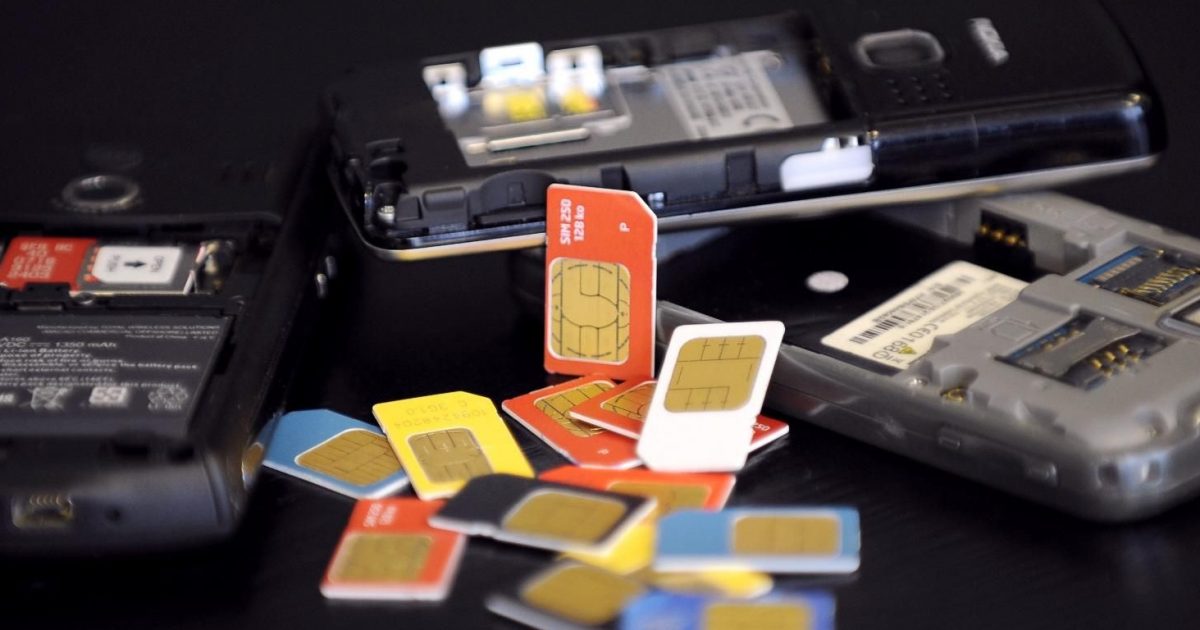The attention of the Uganda Communications Commission has been drawn to the headline, “Is Your SIM Card Safe?” in The New Vision of Friday, December 27, 2019.
The gist of the news story is that seven suspects have been arrested in connection with irregular SIM card registration.
According to the article, SIM card registration agents with criminal intent trick unsuspecting customers to press their finger on the biometric machine for a thumbprint as is required for a SIM card replacement; but in this case, the agent asks the client to touch on the device again, purporting that the first attempt was not clear or the signal was lost.
At this point, the agent captures the thumbprint twice instead of once, thus making a second registration using the customer’s information. This illegally obtained SIM card can then be sold to criminal gangs.
Therefore, while the SIM card registration process itself is robust enough to provide for the tracking of illegal activities, the fraud described in The New Vision article emanates from unscrupulous SIM card vendors who hoodwink unsuspecting customers into registering more than one SIM card in their name.
To fight this vice requires vigilance on the part of the customer and other concerned parties. A vigilant customer can establish how many SIM cards are registered using their National Identification Number (NIN) by pressing *197#,and after that demanding that any number(s) they are not associated with is blocked immediately.
As the article states, the police are doing the logical thing to investigate and follow the trail of the criminals who are engaged in this identity theft, a relatively common phenomenon in the digital age.
On its part, the Uganda Communications Commission issued guidelines on the issuance, sale, swap and registration of SIM cards in Uganda, and a directive for operators to implement a verification mechanism using Short Code 197.
The guidelines restricted the selling, issuance and registration of SIM cards by street vendors, hawkers and street agents. Street vendors and agents are not allowed to swap SIM cards in case of loss or damage. This is to ensure that the personnel handling telecommunications products and services are directly known to the telecom companies and are traceable when the need arises.
The guidelines require all vendors of airtime and SIM cards to operate in establishments licensed by Kampala Capital City Authority or other municipal and town authorities. They are also required to use card readers and fingerprint scanners to validate the information on the National Identity Cards with the National Identity Registration Authority (NIRA) through the established Application Programme Interface (API). The API is a mechanism that allows two independent software components to communicate.
In May 2019, telecommunications companies were instructed to have every SIM card holder revalidate their SIM card. This exercise was also intended to inform the registered owner of the number of SIM cards attached to their NIN and thus get them to revalidate the same.
Subscribers were required to present their original National Identity Cards for verification with their biometrics using the Application Programming Interface (API). The telecoms were required to take a photograph of the subscriber and fill out a new registration form. Between 1st and 15th May 2019, calls made were preceded by a reminder to subscribers to validate their registration status with immediate effect. After 15th May 2019, outgoing calls from none validated numbers were blocked but subscribers were allowed to receive SMS and use Mobile Money services.
It is important to note that SIM cards are ONLY issued upon the production of a valid original National Identity Card for Ugandan nationals. That means duplication only arises where a National ID holder is present, and part of the process as fingerprint biometrics MUST be matched. Upon presentation of an original valid National Identity Card, an authorised agent obtains the biometrics and real-time photograph of the applicant. The biometrics are validated with the information on the National Identity Card through the Application Programming Interface (API).
The telecoms are required to ensure that all particulars of the applicant, upon revalidation and issuance of SIM cards, match the information on the National Identity Card.
Foreigners can ONLY be allowed to purchase a SIM card upon presentation of their original passport with a valid entry visa.
For foreigners from the East African Community, where no visa is required, the applicant MUST provide information about the duration of their stay as indicated in the passport or travel document.
All telecoms are required to utilise the Application Programming Interface (API) for real-time verification and issuance of SIM cards and NO other method or device. Besides, NO SIM card owner (whether Ugandan, foreigner or refugee) is allowed to have more than ten (10) SIM cards on each network. For the avoidance of doubt, each telecommunications network owner is required to ensure that no multiple registrations beyond the authorised ten (10) individual SIM cards per holder exist on their network.
All SIM card applicants who do not have a valid National Identity card but have applied for the same are required to present to the telecoms an original copy of a letter from NIRA confirming their particulars. The telecoms must ensure that this letter has the full details of the applicant.
Applicants who lost or misplaced their SIM cards must submit, together with their National ID or NIRA letter, an original Police document stating their case.





